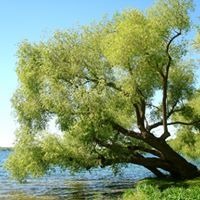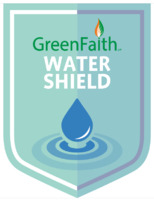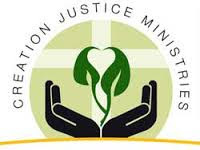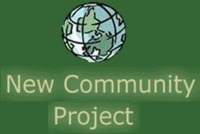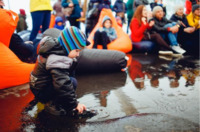Search
174 items
-
Bishop Hartley High School Care 4 Creation student association
Bishop Hartley High School Care 4 Creation student association is a student-led organization that promotes and carries out creation care related projects at Bishop Hartley High School. One example includes the student led climate strike at the school. -
Engaged Organizations: Web of Creation
The Web of Creation website discuss their organization aim and services that they provide:
"The Web of Creation was established to foster the movement for personal and social transformation to a just and sustainable world from religious perspectives. To that end, the information at this site will:
-Connect you with ideas, resources and strategies for doing eco-justice
-Inform, inspire, encourage, educate you about eco-justice
-Support you in your efforts to live, work and pray in ways that promote eco-justice
The Web of Creation has also been developed to provide information and connections for theology students interested in environmental ministry." -
The Yale Forum on Religion and Ecology at Yale
The Forum on Religion and Ecology at Yale website provides an overview of the scope of the environmentally related topics covered on their forum:
"The Forum on Religion and Ecology at Yale is an international multireligious project. With its conferences, publications, and website, it is engaged in exploring religious worldviews, texts, and ethics in order to broaden understanding of the complex nature of current environmental concerns. The Forum recognizes that religions need to be in dialogue with other disciplines (e.g., science, economics, policy, gender studies) in seeking comprehensive solutions to both global and local environmental problems." -
Bloomberg Business Posts Infographic to Show “What’s Really Warming the World?”
Occasionally, an outstanding graphic emerges to help us understand some of the complexities of climate science, such as this recent series of graphs published by Bloomberg Business. If you have wondered how all the various factors and forcings involved in global warming interact, these infographics based on data from NASA’s Goddard Institute for Space Studies are very helpful. -
Environmental Statement – United Methodist Church
The Bishops of the United Methodist Church released a statement entitled: God’s Renewed Creation: Call to Hope and Action. In this statement, they urge individuals to view themselves as a part of creation, and make the necessary adjustments to stop inflicting harming the environment. One salient message is that individuals should take on the roles of being stewards for the planet if there is any hope of redeeming earth from destruction. -
The Little Minyan Kehilah/Sukkat Shalom
The Little Minyan is a Reconstructionist/Jewish Renewal congregation located in the Clintonville neighborhood of Columbus, Ohio. In this article, Rabbi Jessica K. Shimberg, the congregation’s spiritual leader, discusses the recent name change to Sukkat Shalom. She offers that the congregation has grown to the extent that they chose a new name that does not include the word "little" in it. The congregation is heavily involved in community outreach and provides an outlet for community service and spirituality. It is committed to sharing resources to help the planet. -
Muslims and Water Conservation
The United Nations recognizes World Water Day on March 22. The Muslim community is taking this message to heart with discussions of water conservation. The following excerpt provides a brief summary of the Muslim khutbah with regard to the topic of water scarcity:
"The purpose of today’s khutbah is to remind us that the conservation of water and more broadly environmental consciousness should be an integral part of what it means to be a conscientious Muslim. An environmentally conscious Muslim is someone who lives in reverence and harmony with nature and uses water and all other natural resources frugally and sparingly." -
Earth Day Network
The Earth Day Network is an organization with a mission to diversify, educate, and activate the environmental movement. As they continue forward with their mission of building the world’s largest environmental movement, they recognize that faith leaders have been a driving force behind some of the most important social movements. They provide a plethora of resources to guide faith leaders and faith communities in their efforts of stewardship of the planet. -
Water Shield
Water Shield is a program hosted by GreenFaith that helps congregations learn how to conserve water as well as maintain high water quality. This program promotes stewardship, and can help gain a community recognition for their efforts in the environmental awareness world. Water Shield is an eco-merit badge that is bestowed upon faith-based institutions that have taken steps to conserve water, protect water quality, and mobilize its members and community to do the same at home. -
Changing the Columbia River Treaty
Many groups, including faith communities, have called for a restructuring of the Columbia River Treaty. The original treaty was written in 1964, and has become outdated. The people calling for the change want the river to be valued for its ecosystem services that were not included in the original treaty. -
World Help Providing Water for Kirinda, Uganda
World Help, a Christian organization, is raising money to provide clean drinking water to the people of Kirinda, Uganda. They are attempting to fund three major projects, a water well, piping, and irrigation. The lack of clean sources of water for the people who live here is causing diseases and additional hardships. -
A Sermon for World Water Day
Susan Barnett, founder of Faiths for Safe Water, brings attention to World Water Day by highlighting award-winning filmmaker and photographer, Haik Kocharian. Haik recently releasing, “Blessed by Water,” showing rare images of water in tradition, ceremony and spirituality as celebrated by the Christian Orthodox community in Ethiopia. Susan continues to discuss the concerns of clean water worldwide: 663 million men, women and children are forced to drink low quality water; and one third of the world's population don’t even have the dignity and safety of toilets. The article concludes by encouraging church leaders to use their collective voices to advocate for increased access to safe water and sanitation in order to improve global health, nutrition, poverty, gender equality, food security, human security, and peace. -
World Water Day Synopsis
The United Nations and the global community in general recognize World Water Day as a reminder that much of the world faces a global water, sanitation and hygiene crisis. 663 million people—comprising mostly the poorest and most marginalized in the world—live without access to safe drinking water. In addition 2.4 billion people lack access to improved sanitation. The article suggests various ways that individuals can contribute to improving the water conditions in these areas. -
Sustainable Weddings in Columbus
Weddings are typically large events to celebrate the union of two people. Regardless of how beautiful the celebration is, weddings can still generate a lot of waste. In fact, the average wedding can generate 500 pounds of trash. Recently, there has been a movement to have local sustainable weddings that cut environmental impacts significantly. -
Laudato Si’ in Columbus: Bishop Campbell Regales OSU Students with Historical Overview of Catholic Tradition
Bishop Campbell spoke to OSU students about Laudato Si', specifically regarding how Catholic tradition develops the context for it.
"Bishop Campbell highlighted four themes in his talk, including how Catholicism has considered nature for 2,000 years, a Catholic imagination of nature, historical trends of alienation from nature in the Western world, and a discussion of how sin – light and shadow of the world together – plays a role in our ecological situation."
Please click on the link below to view the entire article. -
WATERSHED: Replenishing Water Values for a Thirsty World
This site highlights the reports and videos and resources gathered to address world water resources, sponsored by the Vatican and many other partners. -
Christian Communities Respond to Trump’s Executive Order
President Trump signed an executive order on March 28 directing the EPA to review the Clean Power Plan. This executive order has the possibility to dismantle important climate change protections and fails to offer an alternative plan to protect our air quality and climate stability. Many Christian communities have responded to this action and made official statements on their thoughts and about protecting the Earth. -
Episcopal Diocese of Ohio: Bellwether Farm
Bellwether farm is a new camp and education center of the Episcopal Diocese of Ohio. It is meant to provide leadership development and teachings through sustainable farming, food production, and care of the environment. It is located in Wakeman Ohio, with the goals of informing, inspiring, and empowering leaders for a sustainable future. The buildings are models of green technology featuring passive buildings, renewable energy, and water reclamation systems. -
Church World Service to Withdraw from Paris Climate Agreement
Church World Service released a statement after the announcement that the United Stated will withdraw from the Paris agreement: “CWS strongly condemns President Trump’s decision to withdraw from the Paris Agreement. Coming at a time when the world is facing its largest humanitarian and refugee crisis since World War II, this decision will directly impact impoverished and vulnerable communities around the world and in the United States that are already facing the consequences of a changing climate.” -
New Community Project Creative Arts Page
The New Community Project created a creative arts page to offer resources for justice, peace, and care for creation. In the caring for creation section, there are skits, checklists, and worship resources all centered around this topic. -
Religion and Environment Songs: Mitakuye Oyasin by Nahko and Medicine for the People
Mitakuye Oyasin is a song by Nahko and Medicine for the People that relates to spirituality and nature. The phrase comes from the Lakota language and reflects the world view of interconnections held by the Lakota people of North America. The English translation is “we are all related.” The song lyrics start with being thankful for receiving great wisdom so that we as people can help all living things. The subsequent lyrics describe being thankful for all that we have been provided. -
A Hymn for Hurrican Relief
This article was written to showcase the hymn that was a tribute to prayers for the damage from the recent severe storms in Texas, Louisiana, Nepal, India, Bangladesh, the Caribbean, Florida, Georgia, and South Carolina. In addition to comforting those impacted by the storms, the hymn also serves as a message for government leaders to work for policies that help to counter climate change. -
Wade in the Water
Wade in the Water is a worship resource from the New Community Project. It calls for the stewardship of water and is a 20 minute worship service, including a hymn, about water as a precious resource. To read or download Wade in the Water, see below. -
Sisters of Earth: Hopes and Dreams
How to Face the Mess We’re in without Going Crazy is the subtitle of Joanna Macy’s book Active Hope. The book was the inspiration for the Sisters of Earth gathering that took place July 12-15, 2018 at Mount Saint Joseph, home of the Sisters of Charity in Cincinnati, Ohio. Cincinnati was chosen as the location partly because of the ancestral inspiration of Sister of Charity Paula Gonzalez, who promoted solar power and sustainability projects and teachings throughout the Catholic world. This year, nearly 100 women from the United States and Canada gathered, in part, to remember Sister Paula and also to address concerns about the ecological/spiritual crises of our times by asking questions such as: Who are we? Where are we? How did we get here and what is possible? And — where do we go from here? -
Water Issues in Appalachia
Some people may think that water issues in the United States only exist in the west. This is far from the truth. In addition to algae bloom issues throughout the midwest, the Appalachian region of the United States has been experiencing severe water contamination due to mining and chemical spills for the past several years. Fortunately, the residents of this region are kept informed by the Catholic Committee of Appalachia. Once a year, residents from all over the state meet in one location to discuss the issues of their region and try to come up with solutions.


